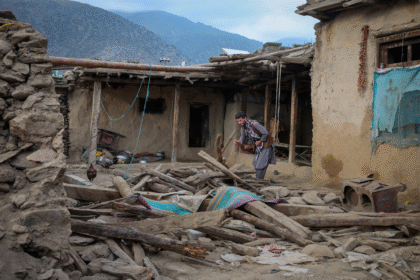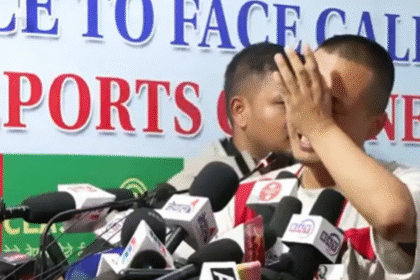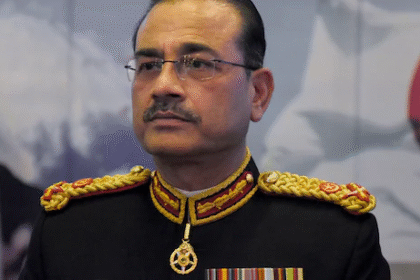Israel-Iran War LIVE: 7+ New Strikes Exchanged as Israel Claims Nuclear Delay of 2–3 Years for Tehran
Stay updated on the escalating Israel-Iran war as over 7 fresh strikes are exchanged. Israel claims it has delayed Tehran’s nuclear program by 2–3 years. Follow live coverage of missile attacks, retaliations, and nuclear developments
The long-standing tension between Israel and Iran has erupted into fresh violence as both nations exchanged a series of deadly attacks in the latest escalation of hostilities. According to live updates from military and intelligence sources, Israel launched more than seven precision strikes across Iranian territory, targeting nuclear-related infrastructure and strategic military installations. In response, Iran fired back with long-range missile attacks, targeting Israeli border towns and defense sites. The conflict, which has been steadily intensifying over the past few weeks, has now reached a critical stage, with implications for regional and global security.

- 7+ Israeli airstrikes reported near Iranian nuclear facilities.
- Iran responds with multiple missile launches into northern Israel.
- Israel claims it has delayed Iran’s nuclear weapons program by at least 2–3 years.
- Global powers call for restraint amid fears of a wider Middle East war.
- Civilians in Tehran and Tel Aviv take shelter as sirens blare.
Early Friday morning, Israel conducted a coordinated aerial offensive, deploying F-35 fighter jets and long-range drones over Iranian airspace. Israeli defense sources confirmed the attacks were aimed at underground uranium enrichment plants, ballistic missile stockpiles, and command centers believed to be linked to Iran’s Islamic Revolutionary Guard Corps (IRGC).
The Israeli Defense Forces (IDF) reported that the operation was designed to cripple Tehran’s nuclear ambitions, which Prime Minister Benjamin Netanyahu described as a “red line” for Israel’s national security.
Within hours of the Israeli offensive, Iranian missile systems went into action. The Iranian military claimed responsibility for launching more than a dozen surface-to-surface missiles, some of which reportedly struck military installations in northern Israel, including near Haifa and Tiberias.
Iran’s Supreme Leader Ayatollah Ali Khamenei issued a stern warning:
Iranian state media broadcast videos of missile launches and reports of civilians chanting slogans outside key government buildings, showing national solidarity in the face of Israeli aggression.
The heart of the conflict remains Iran’s controversial nuclear program. Despite repeated denials from Tehran that it is pursuing nuclear weapons, international watchdogs, including the IAEA (International Atomic Energy Agency), have raised concerns over uranium enrichment levels exceeding 60%.
Israel’s latest strikes are believed to have damaged facilities in Natanz, Arak, and Fordow—sites central to Iran’s uranium enrichment efforts. Satellite imagery released by Israeli media shows extensive structural damage and heavy smoke plumes.

According to Israeli intelligence, the attacks have:
- Destroyed centrifuge assembly lines.
- Disrupted uranium storage.
- Killed at least five senior nuclear scientists affiliated with the IRGC.
The international community has reacted with alarm. The United States, a key Israeli ally, has urged both nations to exercise restraint, while calling an emergency session at the United Nations Security Council.
U.S. Secretary of State Antony Blinken remarked:
Meanwhile, Russia and China condemned the Israeli strikes as “aggressive violations of sovereignty” and pledged to support Iran’s right to self-defense.
The European Union has initiated a backchannel with Tehran and Tel Aviv, urging a de-escalation of tensions and a return to nuclear negotiations under the JCPOA framework.
The human cost of the renewed conflict is already being felt. Iranian media reported over 70 injuries and 12 civilian deaths in the city of Isfahan after Israeli missile fragments struck a residential area.
In Israel, several buildings in Haifa were damaged by missile blasts, injuring at least 15 people, including children. Schools and public services have been suspended in major cities, and bomb shelters are at full capacity.
The economic impact is also taking hold. Crude oil prices surged by 5%, while stock markets in Tel Aviv and Tehran plunged sharply.
Neighboring countries like Lebanon, Jordan, and Iraq have been placed on high alert, fearing spillover effects. Hezbollah, Iran’s proxy in Lebanon, has hinted at joining the conflict if Israel continues its aggression.
Iran’s Rapid Enrichment Progress: Intelligence reports suggested Iran was mere months away from weapon-grade uranium.
Israeli Political Pressure: Netanyahu’s government has faced internal criticism over security lapses and saw military action as a way to consolidate power.
U.S. Election Year Diplomacy: Washington is treading carefully, with President Biden wary of being drawn into a direct Middle East war during an election cycle.
- Hezbollah in Lebanon.
- Shia militias in Iraq and Syria.
- Possible U.S. and NATO involvement if Israeli territory continues to be targeted.
There is also the ever-present risk of miscalculation, especially if critical infrastructure such as nuclear plants or oil fields are hit.
Despite the escalation, both Israeli and Iranian officials have left the door open for indirect talks. Oman and Qatar have reportedly been in contact with both sides, offering to host emergency mediation sessions.
UN Secretary-General António Guterres has also offered to deploy peace envoys and ceasefire negotiators to the region.
Read Also : Trump Slams Tulsi Gabbard: ‘She’s Wrong’ – 5 Key Facts Behind the Iran Nuclear Clash








